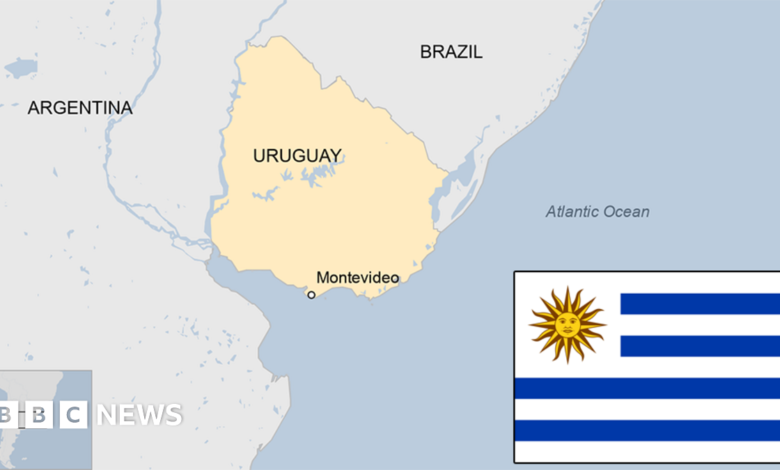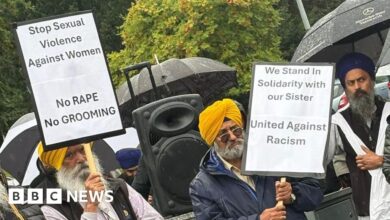Uruguay country profile – BBC News

Some key dates in Uruguay’s history:
1516 – Spanish navigator Juan Diaz de Solis is killed while exploring the Rio de la Plata, his death discourages European colonisation for more than 100 years.
1726 – Spanish found Montevideo and take over Uruguay from the Portuguese; many of the indigenous people are killed.
1776 – Uruguay becomes part of the Vice-royalty of La Plata, which has its capital at Buenos Aires.
1808 – Uruguay rebels against the Vice-royalty of La Plata following the overthrow of the Spanish monarchy by Napoleon Bonaparte.
1812-20 – Orientales, or Uruguayans from the eastern side of the River Plata, fight against Argentinian and Brazilian invaders.
1828 – Brazil, Argentina renounce claims to territories which become the Eastern Republic of Uruguay.
1830 – Constitution approved.
1838-65 – Civil war between Blancos, or Whites – the future conservative party – and Colorados, or Reds – the future liberals.
1865-70 – War of the Triple Alliance. Uruguay joins Argentina and Brazil in war against Paraguay, which is defeated.
1903-15 – Reformist Jose Batlle y Ordonez (Colorado Party) gives women the franchise and establishes a welfare state, disestablishes the church and abolishes the death penalty during two successive terms as president.
1933 – Opposition groups excluded from politics following military coup.
1933 – Gabriel Terra abolishes National Council.
1960s – Emergence of the leftist Tupamaros group, which stages guerrilla attacks. The military launches a brutal counterinsurgency.
1973-85 – Military rule characterised by extreme repression.
1985 – Army and political leaders agree on return to constitutional government and the release of political prisoners; law grants amnesty to members of the armed forces accused of human rights violations.
2007 – A new parliament of South America’s leading trading bloc Mercosur is inaugurated in Montevideo.
2009 – The Supreme Court rules that a law shielding officials of the last military government from prosecution for human rights abuses is unconstitutional.
Former military ruler Gregorio Alvarez is sentenced to 25 years in prison for murder and human rights violations.
2010 – Former president Juan Maria Bordaberry is sentenced to 30 years in prison for murder and violation of the constitution in the wake of the 1973 military coup.
2011 – Congress revokes an amnesty law that protected military officers from prosecution for crimes committed under military rule in 1975-1983.
2012 – Uruguay becomes the first country in Latin America after Cuba to legalise abortion for all women.
2013 – Uruguay legalises same-sex marriage.
2013 – Uruguay becomes the first country to legalise the cultivation, sale and consumption of marijuana for recreational use, as a measure to counter drug cartels.
Source link




